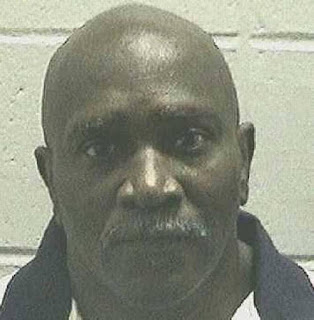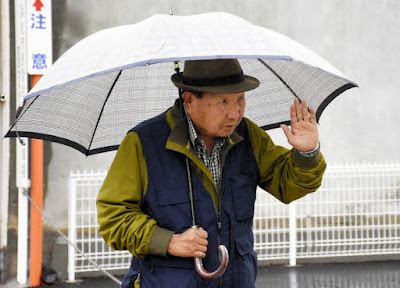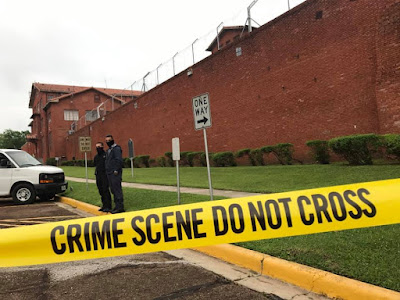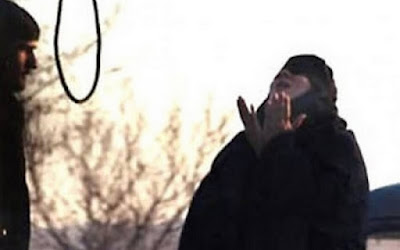Keith Tharpe was convicted and sent to death thanks in part to a racist juror.
If the Supreme Court is serious about reducing the impact of racial prejudice in capital cases - and 2 recent decisions suggest it is - the justices will halt the pending execution of a Georgia man and grant him a new trial. At stake in the case of Keith Tharpe is not the question of his guilt or innocence. At stake is the proposition that no black person should be condemned to death by a white juror who proudly boasts after sentencing that he voted to impose capital punishment because the defendant was a "nigger."
The facts of the case are simple. His prosecutor, a district attorney named Joseph Briley, came to the case with a reputation for using peremptory strikes during jury selection in a racially discriminatory fashion. The federal courts had caught him in prior cases trying illegally to exclude blacks from juries sitting in judgment of black defendants. In Tharpe's case, Briley successfully managed to eliminate 5 of 8 qualified black jurors. No problem, the trial judge declared, there was no evidence of bad faith on the part of the prosecutor.
One of the potential jurors who made it onto Tharpe's panel, a juror embraced by prosecutor Briley, was a man named Barney Gattie, who swore up and down during voir dire that he had no preconceived notions about the case and did not know the victims. It didn't take long for Gattie and his fellow jurors to convict Tharpe and sentence him to death. That would have been that, we never would have heard of this case, except that Gattie had much more to say about Tharpe when he questioned by defense attorneys working on Tharpe's post-conviction appellate review seven years after trial. Here is how Tharpe's current attorneys characterize that conversation:
Mr. Gattie expressed his feelings about the case in general. He stated that there are two kinds of black people in the world - "regular black folks" and "niggers." Mr. Gattie noted that he understood that some people do not like the word "nigger" but that is just what they are, and he "tells it like he sees it." According to Mr. Gattie, if the victim in Mr. Tharpe's case had just been 1 of the niggers, he would not have cared about her death. But as it was, the victim was a woman from what Mr. Gattie considered to be one of the "good black families." He explained that her husband was an EMT. Mr. Gattie stated that that sort of thing really made a difference to him when he was deciding whether to vote for a death sentence.
There is more from Gattie in the record that illustrates he was not faithful to his oath as a juror but the above makes the point. Immediately after Gattie's comments were made available to state lawyers two decades ago, they rushed to the juror's home and got him to sign a counter-affidavit that sought to nullify what he had told Tharp's investigators. That 2nd affidavit, the one in which Gattie swore he wasn't a bigot, has been the basis of the state's defense for the past 20 years.
Georgia courts have consistently failed or refused to acknowledge the import of Gattie's 1st sworn statement, the one he reviewed and initialed before he realized that one really should not say such things under oath. Instead, state lawyers and state judges have concluded that they need not address the merits of the claim because Tharpe is procedurally barred from making it; that he waited too long to find out that one of his jurors sentenced him to death for being a "nigger," in other words. Georgia also has relied for years on a common rule that precludes judges from considering the post-trial comments of jurors that would "impeach" the reliability of a verdict (a rule, as we'll see below, the Supreme Court just diminished).
Georgia's defense of racism here is indefensible as a matter of law and fact. This surely was true in 1998 when Georgia first started discounting the importance of a racist juror in the capital trial of a black defendant. And it is especially true now, in the past 6 months, ever since the Supreme Court decided Buck v. Davis and Pena-Rodriguez v. Colorado. Buck is a Texas case in which a notorious defense expert told jurors in the capital trial of Duane Buck that Buck would be more dangerous in the future because he was black. Texas defended that outrageous prediction for decades, even after state officials acknowledged the racist damage such testimony had caused in other trials infected by that same expert. This Spring, a majority of the justices finally put a stop to the nonsense, sweeping away the hoary procedural objections state officials had put up to deny Buck the right to a trial free from racial prejudice. Tharpe hopes for a rescue from the justices as they acknowledge the Sixth Amendment means little if a juror like this can infect a capital case.

The Pena-Rodriguez case is even more apt as precedent in the Tharpe case. In Pena-Rodriguez, a juror made a series of racist statements about the defendant, an Hispanic man. No reasonable person reading those statements would believe that the defendant had gotten a trial free from unconstitutional bias or prejudice. But for years Colorado defended the conviction in the case by arguing that jurors could not subsequently be "impeached" for their misconduct during deliberations. Nonsense, the justices in Washington announced this spring; in cases of obvious racial prejudice the "no-impeachment rule had to give way to the more substantive Sixth Amendment right to a fair trial.
Now comes Georgia, which is defending the comments of a racist juror by arguing that Buck and Pena-Rodriguez don't apply to the case, or at least don't apply directly enough to spare Tharpe's life and give him a new trial where one of his jurors doesn't gleefully consider him a "nigger." Georgia, in fact, is relying on the same jury impeachment rule that Colorado unsuccessfully relied on in Pena-Rodriguez. Tharpe surely hopes the result for him will be the same - a rescue from the justices as they acknowledge the Sixth Amendment means little if a juror like this can infect a capital case.
As it now stands, Tharpe will die by the state's hand at 7:00 p.m. September 26. A district court has rejected Thorpe's latest motion and an appeal is pending before the Eleventh Circuit. What has happened so far to Tharpe in Georgia is another classic example of the hollowness of the law, where judges hide behind procedural, post-conviction rules to justify convictions that are, like this one, hard to justify as a matter of common sense. What should happen now is obvious. Gattie is dead and cannot testify in his own defense. Keith Tharpe may be guilty of murder. In the end, he may even deserve the death penalty. But a conviction and death sentence based in part on the bigotry displayed in his case cannot be countenanced if the constitutional right to a fair trial, and the right to equal protection and due process of law, mean anything.
Source: esquire.com,Andrew Cohen, Sept. 14, 2017
⚑ | Report an error, an omission, a typo; suggest a story or a new angle to an existing story; submit a piece, a comment; recommend a resource; contact the webmaster, contact us:
deathpenaltynews@gmail.com.
Opposed to Capital Punishment? Help us keep this blog up and running! DONATE!
"One is absolutely sickened, not by the crimes that the wicked have committed,
but by the punishments that the good have inflicted." -- Oscar Wilde













